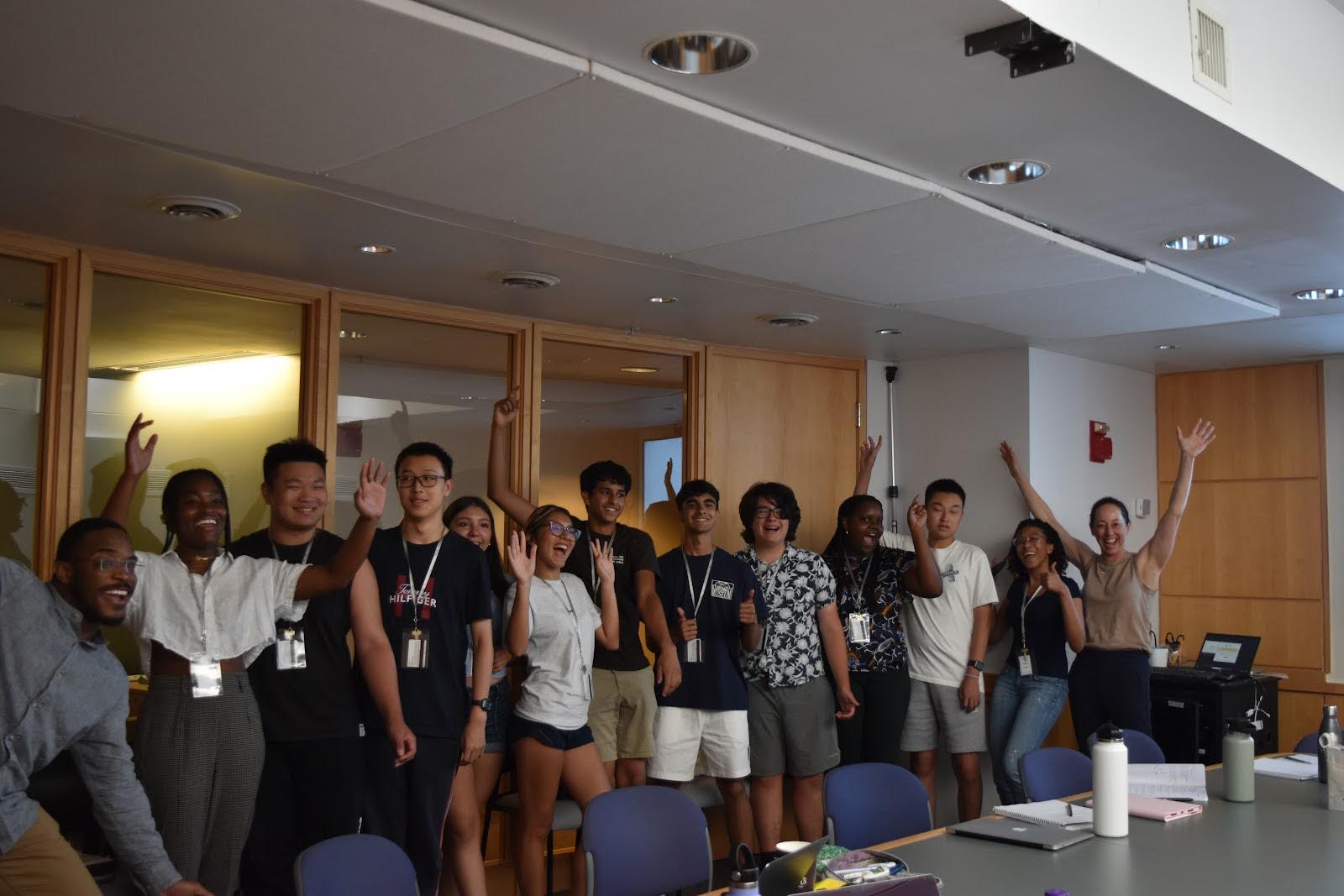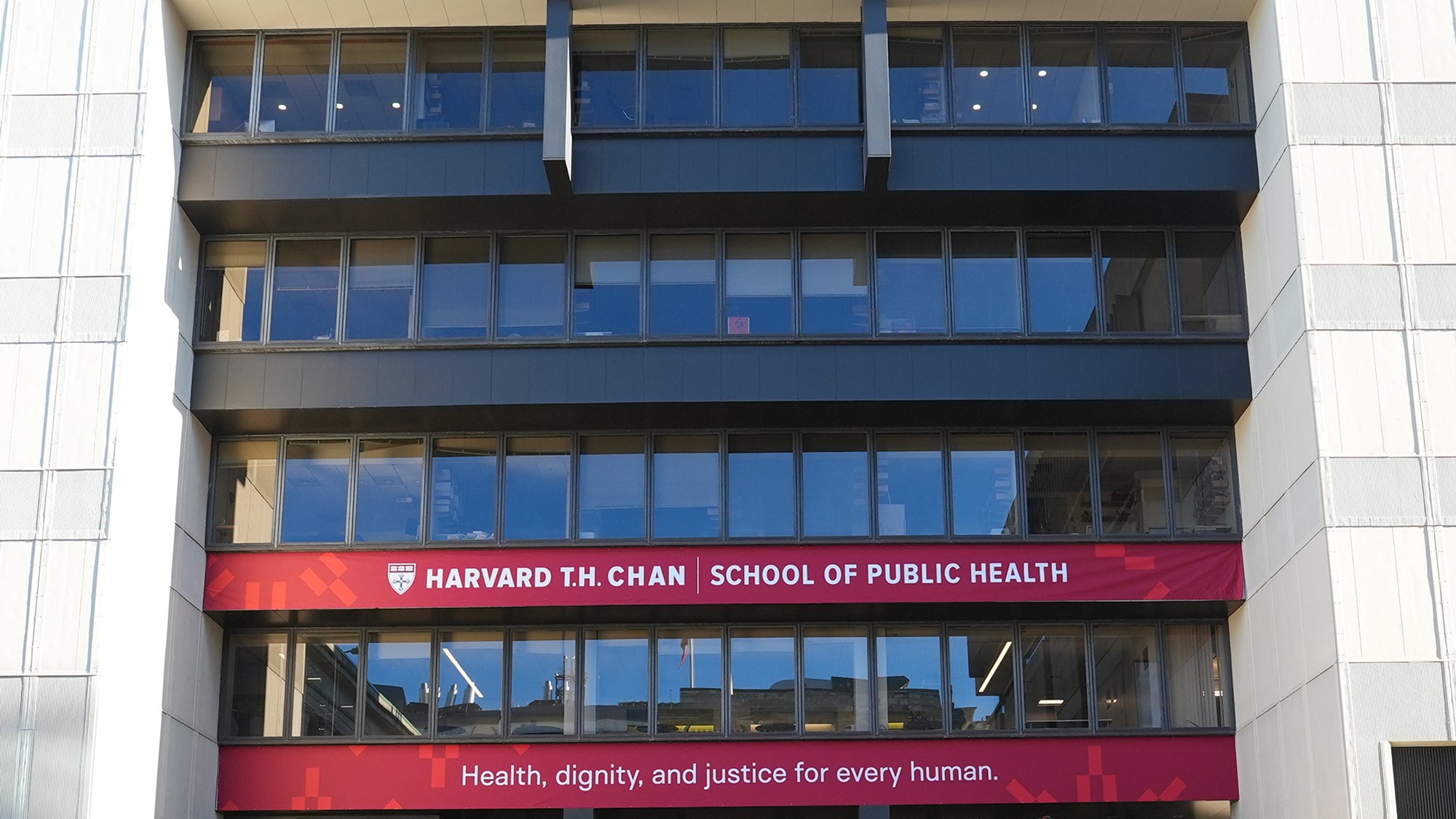Youth Summit on Climate, Equity, & Health Brings Climate Optimism and Inspires Global Action

Each summer, the Center for Climate, Health, and the Global Environment at Harvard T.H. Chan School of Public Health (Harvard Chan C-CHANGE) joins forces with Putney Pre-College to bring together passionate high school students from around the world for a Youth Summit on Climate, Equity, and Health.
The week-long program trains students to become climate and health leaders in their communities through workshops, field-based activities, and meetings with scientists, health and policy experts, academics, energy innovators, and climate communicators. This year’s summit took place at the end of July on the Harvard Chan campus.
Skye Flanigan, programs director at Harvard Chan C-CHANGE, has organized the annual summit since 2021.
“Over the past four years, we have had over 400 students join the program, all bringing unique backgrounds and climate stories,” said Flanigan. “What makes this program so inspiring is watching each student get energized to take action as they craft a climate action plan to address an issue facing their own community.”
This year’s program welcomed 67 high school students from 19 states and five countries (China, Greece, Taiwan, Uganda, United Kingdom), representing a range of backgrounds and community engagement in climate work. The students joined like-minded peers in groups that focused on climate communications, press, and media; policy and advocacy; medicine and healthcare; entrepreneurship, industry, and tech; climate science; environmental justice; and global health, epidemiology, and infectious diseases.
Unique experiences convene toward climate action
Kohana Henson, a twelfth grader from New York City, said she was inspired to join the program because of the climate events she experienced.
“I did not want to continue seeing smoke in the sky and train systems not working because of flooding. I wanted to learn about why these things are happening, and how I can change something so that it does not continue to happen in my future,” said Henson.
For Summer Bannigan, an eleventh grader from Kansas, climate wasn’t part of her curriculum in school. Through her own research, she realized that the omission meant the student body wasn’t informed about the impacts of climate change and how they can take action.
“I think the more people learn, the more they can make a difference. It just takes one person to start talking about climate change and spreading the word.”
Students spent the week hearing from guest speakers including Harvard professors, social media creators from Harvard Chan C-CHANGE’s list of Climate Creators to Watch, youth activists, healthcare professionals, psychologists, and more.
Presentations spanned beyond the basics of climate and health to help students understand the nuanced ways climate change can impact people’s lives and livelihoods. For example, groups spent one morning discussing how climate change affects lung health, another on the health challenges migrant workers experience in extreme heat, and another exploring the disproportional impacts of climate change on prenatal development in frontline communities.
Keynote speeches encouraged connection and conversations between students and the opportunity to take part in extended Q&A sessions with speakers.
Action focus groups develop plans to combat climate issues across the globe
Presentations, workshops, and seminar time helped students shape their action focus projects, which included plans to advocate for climate policies and implement solutions back home. Students worked in small groups to craft these projects, bouncing ideas off of each other, brainstorming plans with their action focus leader, and taking inspiration from guest presentations throughout the week.
Projects included combating food waste, constructing a climate science website, advocating for climate-based curricula in schools, drafting articles on local air pollution, and using sustainable business practices to help protect local resources.
“One of my takeaways was learning how to effectively start and take action within my own community,” said eleventh grader Kieran Graseck of Connecticut. “There are solutions to climate change, it is just about a culture change and cultural movement that needs to take place.”
Students return home equipped with new knowledge, connections, and a plan for action
Students left the program feeling inspired to act, more optimistic than before, and feeling that they had joined a community of like-minded individuals.
“I feel hopeful and empowered after meeting so many speakers, interacting with peers, and learning that we have the ability to do something,” said tenth grader Brian Song of Connecticut. “I will do my best to spread awareness of climate change in my community so people in my community can influence more people,” he added.
“I am optimistic, and being around this community inspires me to make a change in this world,” said Elliot Chan, a tenth grader from Arizona. “It doesn’t matter what people think or say, the best thing you can do is just take the courage to start.”
As they left the summit, students said they feel equipped with the knowledge they need to influence others.
“Caring about something bigger than yourself helps you learn about yourself. I learned about what I am capable of and how to influence my community,” said tenth grader Tallie Signorello of Pennsylvania. “This program far exceeded my expectations,” she added.
“With the tools this program has given me, I can better make change,” said Vivian Alderman, an eleventh grader from Oklahoma. “This program will really change your life and the way you see things.
Learn more about the Youth Summit on Climate, Equity and Health.


